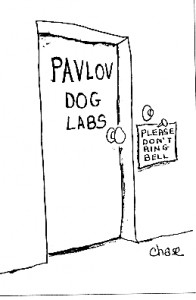Saving Your Marriage
https://savethemarriage.com/stmblog/wp-content/themes/corpus/images/empty/thumbnail.jpg 150 150 Lee H. Baucom, Ph.D. Lee H. Baucom, Ph.D. https://secure.gravatar.com/avatar/669b7e375d93f77521ddaba08adb8063?s=96&d=blank&r=pgSaving Your Marriage – http://bit.ly/oiJ5cz Saving Your Marriage – http://bit.ly/ Saving Your Marriage – http://bit.ly/ Saving Your Marriage – http://bit.ly/ Saving Your Marriage – http://bit.ly/ Saving Your Marriage: What Does Pavlov Have To Do With It? – http://bit.ly/ Remember Pavlov and his dog? In this famous experiment, Ivan Pavlov would ring a bell and then feed his dog. He repeated this process over and over, and then he just rang the bell. No food. Remember the dog’s response? He still expected the food and started salivating!
We can all be clear that Fido was not sitting there thinking dinner bell just rung, so here comes my dinner! Yet that is exactly what his body was doing, getting ready for dinner.
Are we so different than the dog? Oh, sure, we can think in words, so we can do a little reasoning. But we are still creatures of conditioning. When we go to a movie, popcorn suddenly sounds good. When we hear the icecream truck, we start thinking about how good th



